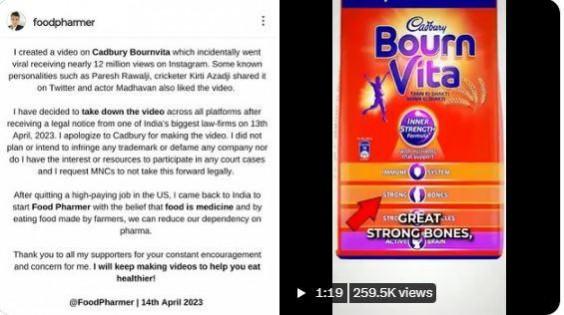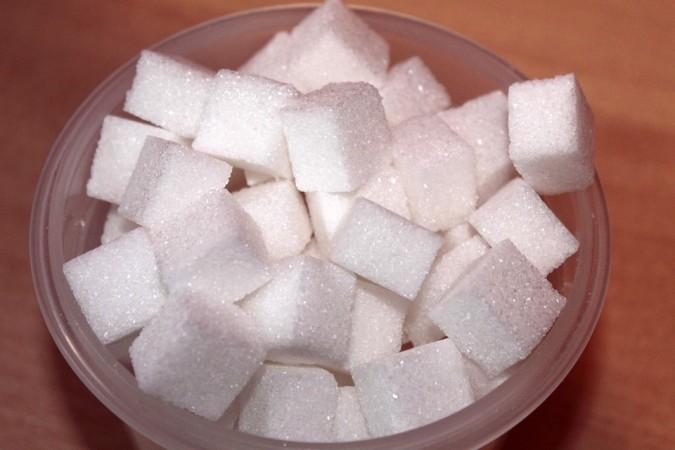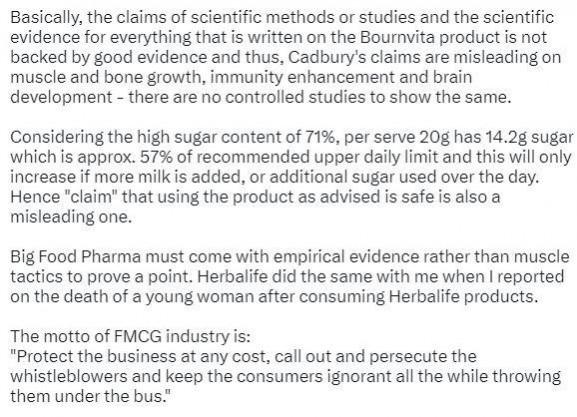The now-deleted post dedicated to Bournvita by Instangram influencer Foodpharma has sparked a controversy around understanding the complicated food labels and the many novel names by which sugar sneaks into the packaged food. While at it, the unregulated use of marketing words like immunity-boosting, strength-building, healthy for bones, etc, too continues unabated, many have pointed out.
The Instagram reel by influencer foodpharmer went viral clocking nearly 12 million views, before Cadbury served a legal notice and it was taken down with an apology. In the post, he explained how 100gms of Bournvita allegedly contains 50gms of sugar.
Apart from a conversation and debate on simplifying food packaging, the need of the hour remains a law, a method, a rating or simply a system that'll help people make healthier food and beverage choices, experts have demanded. It all starts with transparent labelling and the one that will be easily understood.

Indian Nutrition Rating
Who doesn't buy packaged food and snacks in India or elsewhere in the world? But how many truly understand or identify as to what they are consuming? As the consumption of packaged processed food increases exponentially in India, it comes accompanied by risk of diabetes obesity, cardiovascular issues among others.
In their 2018-draft paper, FSSAI (Food Safety and Standards Authority of India) proposed that food labelling should instead be in front of the package and indicate fat, sugar, & salt per serving, and a clear warning if per serving is beyond a certain percentage of daily requirement. The labelling can further mention the recommended maximum number of per servings per day.
The draft notification issued aims at letting consumers know right away as to how healthy or unhealthy a product is. The overall nutritional profile of a product rates from half a star to 5 stars, with half a star reserved for the least healthy products.
The INR system set to appear soon on packaged foods has been criticised by experts on several counts. For instance, an otherwise unhealthy product's rating can be improved by simply adding a few nuts. Several other loopholes make it easy to manipulate ratings.
Talking of sugar
An influencer once blew the whistle on how big names in the food industry and MNC's actually held meetings exclusively reserved for finding more novel ways of labelling sugar on the packets.
There are as many as over 60 different names for sugar, ranging from dextrose, fructose, glucose, galactose, lactose, maltose, sucrose to more sneaky sugars such as coconut sugar, castor sugar, corn syrup solids, crystalline fructose, confectioner's sugar, beet sugarcrystalline, demerara, glucose syrup solids, diastatic malt etc to liquid sugars such as caramel, corn syrup etc. The list is novel, endless and ever evolving.

After the influencer, the scientist steps in
The legal notice served by Cadbury on Revant Himatsingka reportedly forced him to take down the video but that neither helped the image of the Cadbury nor manoeuvred the conversation away from actual sugar content of Bournvita. Soon after the legal notice, scientist and liver doctor Dr Cyriac Abbey Philips questioned the claims made by Bournvita on its packaging, by asking the MNC to furnish proof or studies for validation.

The hitherto staple drink for children in Indian households is almost a generic name for chocolate flavoured drinks meant to be given in milk. Terms like 'recommended by doctors,' are not difficult to find on the labels too.
However, several health experts have stepped forward to express their concerns over such health drinks with high sugar content and colouring agents. They not only spike the risk of diabetes but ironically adversely affect bone density, weight and thus immunity. Dr Philips, from The Liver Institute, Centre of Excellence in Gastrointestinal Sciences at Rajagiri Hospital said in his Twitter post, "Cadbury's claims are misleading on muscle and bone growth, immunity enhancement and brain development—there are no controlled studies to show the same."
The post also says, "Cadburys has made a statement that they have designed the product on scientific basis, which means there has to be published studies backing their claims. Here are the ones I found," he then goes on to show the studies that negate Bournvita's claims. A study that showed caffeine content in Bournvita was higher than other similar cocoa based products, yet another that says how Nigeria women avoided Bournvita due to fear of developing "big babies" further leading to birth complications and delivery. Yet another study pointed out how Bournvita changed colour due to its inherent changes in pH content because of sugar. "Considering the high sugar content of 71% in the product—per serving of 20gm has 14.2 gm sugar which is approximately 57% of recommended upper daily limit---this will only increase if more milk is added, or additional sugar is consumed over the day. So, the claim that their product is safe is also misleading." He also added, "Motto of FMCG is protect the business at any cost, call out and persecute the whistle blowers and keep the consumers ignorant all the while throwing them under the bus."
















